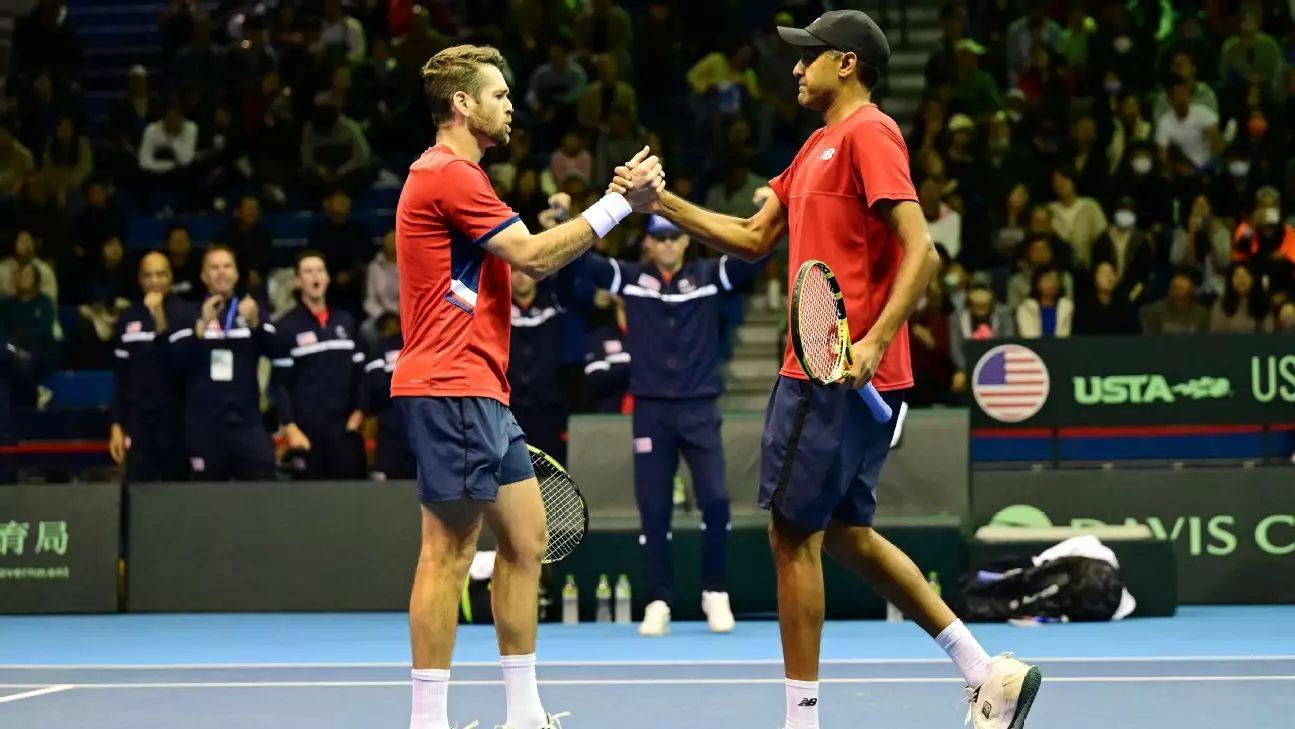The Davis Cup qualifier featured an exhilarating matchup that showcased not just skill but also resilience and determination. Japan triumphed over Britain with a remarkable comeback victory, going from a position of struggle at 2-1 down to ultimately winning the tie 3-2. This match was a testament to the unpredictable and dramatic nature of team sports, especially in high-stakes competitions like the Davis Cup. With Japan’s impressive performance, they have now etched their name in the history of the tournament, having defeated Britain for the first time.
Meanwhile, the United States displayed their dominance with a convincing 4-0 victory over Taiwan. This decisive win was marked by the Americans’ ability to maintain control throughout the matches, not dropping a single serve in the process. The contrasting journeys of the two teams—Japan’s hard-fought victory and the US’s clean sweep—highlight the competitive landscape of international tennis and the varying degrees of challenge within the qualifiers.
The Davis Cup tie began with Japan and Britain evenly matched after the Friday singles rubbers, with both sides claiming a victory apiece. However, the British duo of Joe Salisbury and Neal Skupski gained the upper hand by winning the doubles match against the Japanese pair Yosuke Watanuki and Takeru Yuzuki. With a score of 7-6 (4), 7-6 (3), they put Britain just one victory away from advancing to the next round.
In a crucial moment, Japanese player Yoshihito Nishioka delivered a commanding performance in the singles rubbers, leveling the match with a victory over Jacob Fearnley. Nishioka’s success set the stage for Japan’s star player, Kei Nishikori, who was determined to redeem himself after a disappointing loss to Fearnley in the previous round. Nishikori’s commanding 6-2, 6-3 victory against Billy Harris proved pivotal. Not only did it clinch the tie for Japan, but it also marked a personal milestone for Nishikori, representing his 300th hard-court win.
Kei Nishikori’s comeback performance was not just a win for his team; it served as a symbol of resilience. The 35-year-old veteran acknowledged his earlier performance, expressing his desire to regain composure and deliver a solid game. “I had a bad day yesterday. I tried to be more solid and aggressive and stay calm today,” he said, emphasizing the mental aspect of sportsmanship that often dictates outcomes in high-pressure scenarios.
Britain’s Davis Cup captain, Leon Smith, recognized the skill and depth within Team Japan, acknowledging that players like Nishioka and Nishikori bring considerable experience and talent to the court. He extended his congratulations to Japan, highlighting the nation’s burgeoning capabilities and future possibilities in international tennis. Such statements underline the respect athletes hold for their opponents—a crucial aspect of sportsmanship.
With their victory, Japan advances to the second round of the Davis Cup qualifiers, a step closer to their ultimate goal: reaching the main draw Finals. This win serves as a crucial confidence booster for the team moving forward. As for the United States, their perfect performance against Taiwan sets them up for an intriguing matchup against the Czech Republic later this year.
The first round of the Davis Cup showcases 26 teams vying for a coveted spot in the subsequent rounds, highlighting the fierce competition among nations in the world of tennis. As the tournament progresses, fans remain eager to witness how the narratives unfold, with established teams and rising players striving for glory on the international stage. Ultimately, the resilience displayed by the likes of Japan and the dominance shown by the United States highlight the driving spirit behind the Davis Cup, making it a thrilling event for tennis enthusiasts around the globe.

